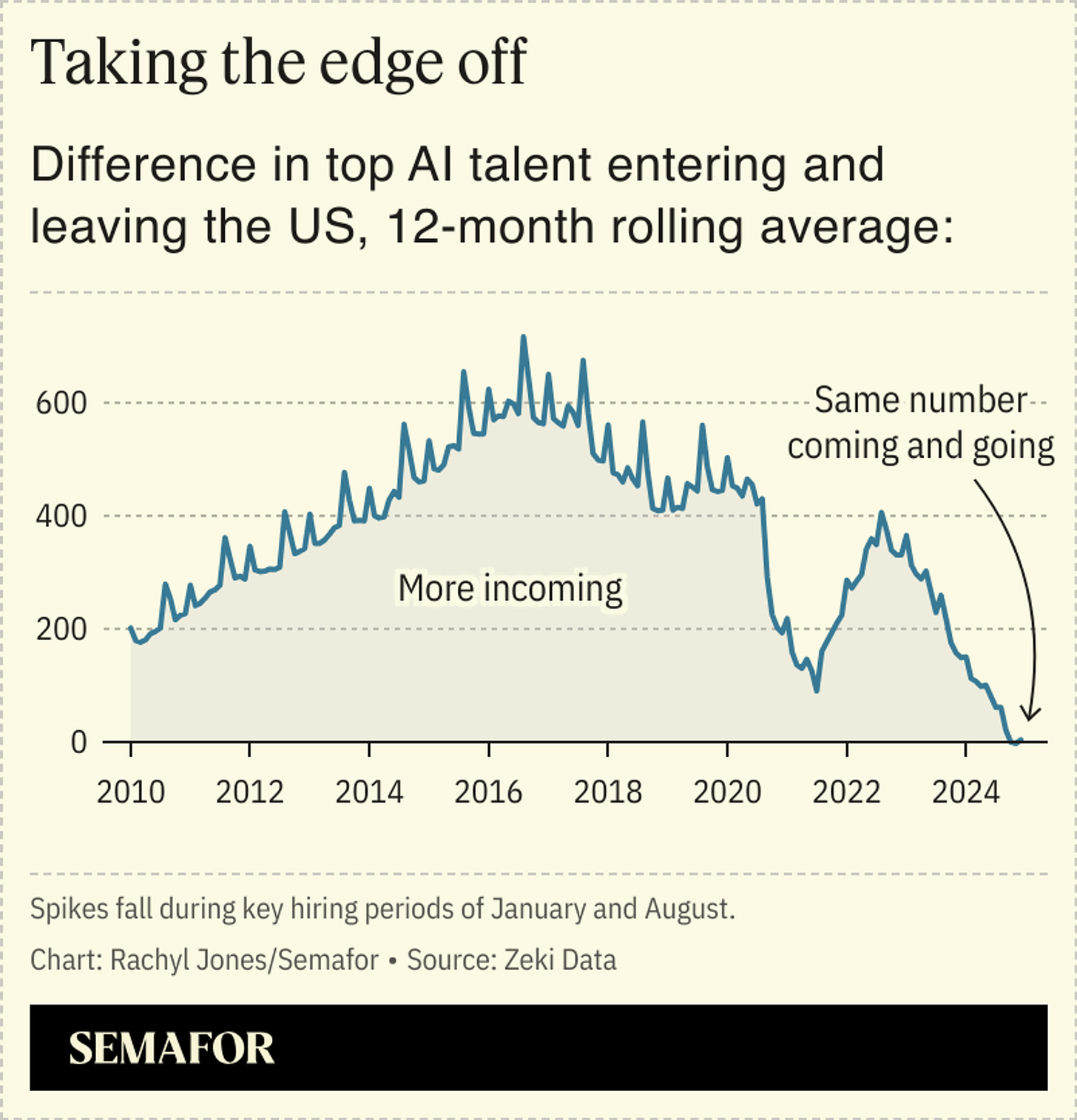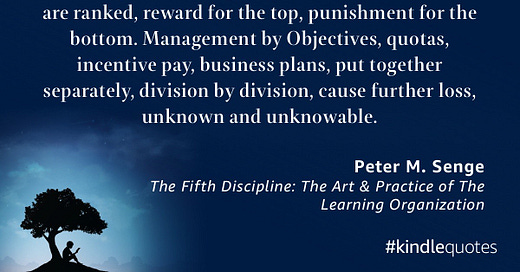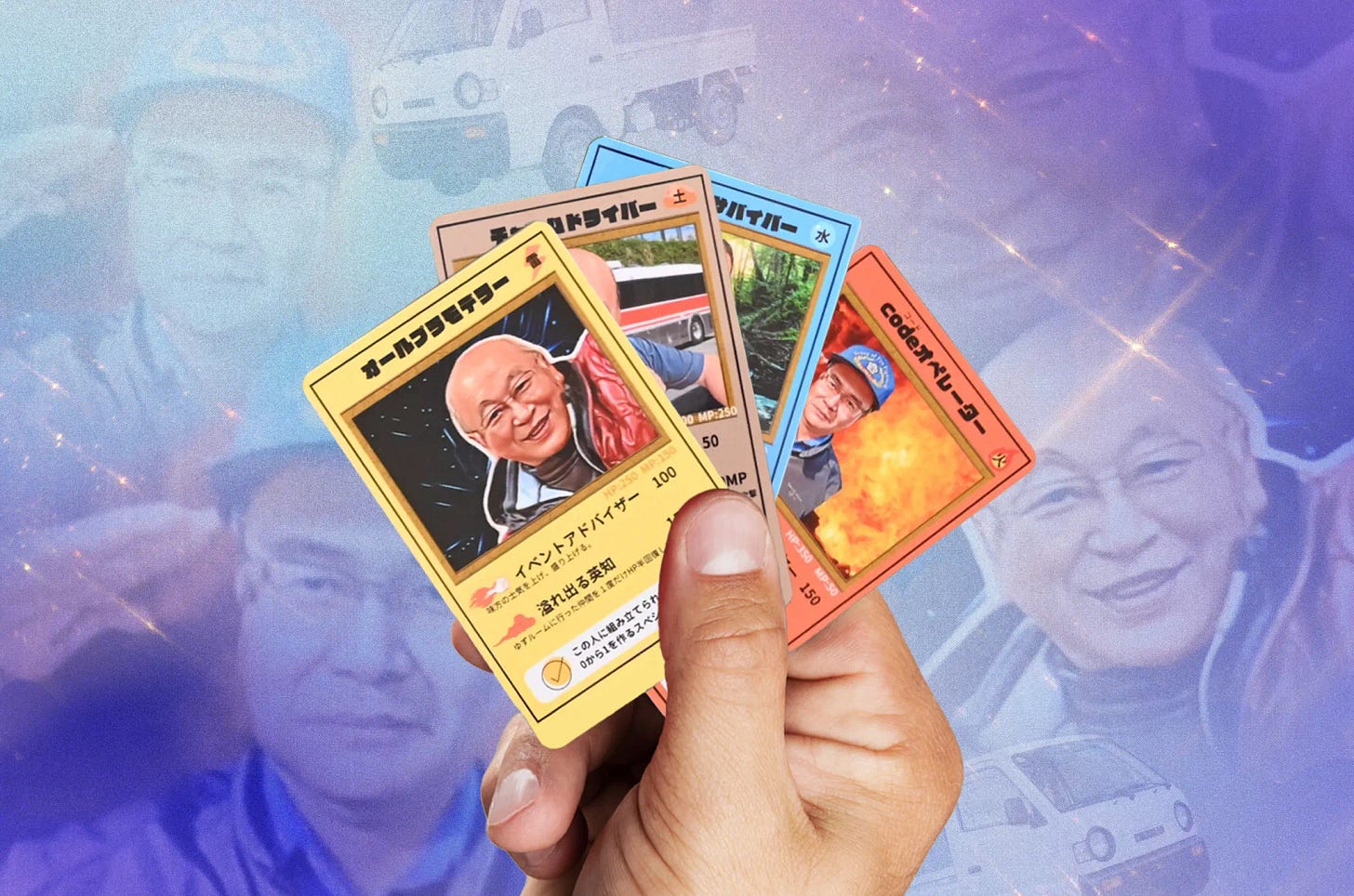So I’ve started re-reading Senge’s Fifth Discipline - if you’re at all interested in how organizations learn, you should too. Got to the intro and found the quote below. Now I post a lot of LinkedIn so I have an idea when something takes off, and this one did. To be clear, I measure something I post going “viral” in dozens of like and not thousands - I know where I stand. As I get ready to announce some news though, that second sentence really hit me. We don’t have to worry about how to make people learn - they want to. We have to figure out how to not put out that fire - forget clearing a path and maybe focus on giving them the tools and getting out of their way.
Now to move from the sublime to the just cool and heartwarming……
Middle-Aged Man Trading Cards Go Viral in Rural Japan Town: How can you not love this? :-) “…the children of Kawara are clutching to something a little closer to home. They are playing a trading card game (TCG) where the stars aren’t fantasy creatures, anime heroes or even famous baseball players, but ojisan (middle-aged or older men) from the local community of Saidosho.” And this > > “The creator of the game is Eri Miyahara, the Secretary General of the Saidosho Community Council…We wanted to strengthen the connection between the children and the older generations in the community. There are so many amazing people here. I thought it was such a shame that no one knew about them..”
EPIC2025: Sometimes I get asked about conferences outside the #LearningAndDevelopment world that I think would be great to attend - of course I think inside L&D, people should go to The Canadian eLearning Conference and maybe hit up a great workshop there ;-) - but outside L&D, I can’t recommend EPIC 2025 enough - just not enough superlatives. EPIC is made up of anthropologists, ethnographers, designers, and others who work to “help organizations make strategic decisions, create value, and navigate uncertainty by understanding people within cultural ecosystems.” Sounds just a little useful right? Let’s just look at the keynote - Peter Sarlin, Co-founder and CEO, AMD Silo AI; Professor of Practice, Aalto University will speak on “What does it mean, in practice, to “put humans at the center” when building or integrating AI solutions? How can AI become a true engine of value creation – not just through automation and making us more efficient? How can we ensure that AI delivers real, lasting value to businesses and society?” Again, can’t see where any of that would be applicable right? Oh, did I mention, its in Helsinki.
Can you run a company as a perfect free market? Inside Disco Corp - For over a decade, a $20bn manufacturer has been conducting a radical experiment. No one has a boss or takes orders. Their decisions are guided by one thing, an internal currency system called Will: Got really strong Down and Out in the Magic Kingdom vibes reading this article. If you haven’t read it (and why not, Cory published it under a Creative Commons license), in the near future, the currency is Whuffie - a basically how popular you are on social media - yes, THAT Black Mirror episode. I’m honestly trying to figure out how I feel about this but would love your thoughts > > “Disco is a business unlike any other. Since 2011, it has conducted a radical experiment to operate a blue-chip company on purely free-market principles. Nobody has a boss. Superiors cannot tell juniors what to do. Each day, employees choose whatever tasks they want. They can quit or join a different team at their own volition. Within this state of perfect freedom, most of their decisions will be guided by Will, as Disco’s internal currency is known. Employees earn Will by doing tasks. They barter and compete at auction with their colleagues for the right to do those tasks. They are fined Will for actions that might cost the company, or compromise their productivity. Their Will balance determines the size of their bonus paid every three months.”
The Game Designer Playing Through His Own Psyche - Davey Wreden found acclaim in his twenties, with the Stanley Parable and the Beginner’s Guide. His new game, Wanderstop, grapples with the depression that followed: These are such deeply interesting games that deal with no kidding deep topics - they are engaging to play and this is a great interview and insight into the mind of the person who created them.
Close reading ChatGPT's "metafiction" -Pastiche in the age of automation: “I don’t typically put much stock in the literary tastes of tech executives. But I was intrigued when, in a March 11 post on X, the OpenAI CEO Sam Altman teased “a new model that is good at creative writing” and shared a 1200-word story it had produced. “This is the first time i have been really struck by something written by AI,” Altman added.”
This month’s Frame: improving game development through Talal Asad's theory of religion (via Stripe Partners): As you read, keep thinking, one aspect of fandoms is that they are customer bases that are emotionally invested > > “we can apply the work of anthropologist Talal Asad, who created the concept of a “discursive tradition” to answer a similar problem in the anthropology of religion. His analysis of religion reveals how traditions evolve through reinterpretation and community engagement, helping us see gaming fandoms not as static entities but as living, participatory cultures.”
“Socially-Constructed” Does Not Mean “Not Real:” Knowledge-Making and the Meaning of Subjectivity in the Social Sciences: Great essay and really highlights one reason I tend to not like the phrase “social learning” (although I understand what people are saying) - because to me, it’s impossible for learning to be anything other than social > > “But this is not what anthropology means when it says subjective. Rather, anthropologists tend to view all knowledge as socially, culturally, and historically situated in a way that breaks down the objective/subjective divide and turns it into more of a mosaic than a spectrum. All knowledge is socially constructed because it is made by people using methods, instruments, standards, and prior knowledge also made by people, under situations and circumstances that shape and constrain what it is possible to know.”

I Recorded Everything I Said for Three Months. AI Has Replaced My Memory (gift link): I’m sorry but anyone remotely familiar with Bentham’s Panopticon or Foucault’s Discipline and Punish (yes, our history grad student lounge was shared with the philosophy grad students), should be really creeped out by this. I think we overlook that the forgetting that humans do is a feature and not a bug. I’m a relentless researcher (hence the Fox) but I’d need a significant boost in cognitive capacity to wade through everything I say every day not to mention the gaping attack vectors of a dumb device transmitting all my spoken words to a 3rd party server. How about a big no thank you from here?
The AI jobs crisis is here, now: This a great read - really - “This is a glimpse of the AI jobs crisis that is unfolding right now—not in the distant future—and that’s already more pervasive than we might think.” It’s especially depressing for recent college grads. I wonder though about the length of the disruption. That is, how quickly can we move from our current models to new models that build in AI but also create new roles for humans. I still believe that these cyborg organizations will be the real winners. Not AI-first but AI-enabled or augmented. See also this for a possible countervailing force? How AI Is Helping Job Seekers Pivot to New Careers.
Marc Andreessen Says One Job Is Mostly Safe From AI: Venture Capitalist: Did you actually hear my eye roll? I think they almost stayed in the back of my head. OF COURSE Andreessen says there’s no way he could be replaced by AI but everyone else could. Just an atomic face palm.
Also, as a bonus for those of you who’ve read this far - the whole frog in boiling water thing is a myth.






